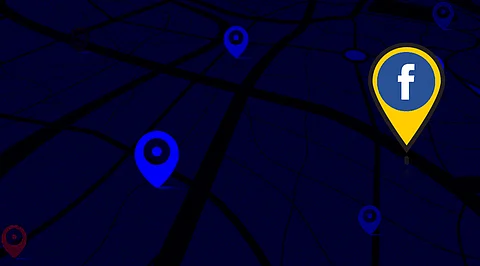
- Insights
- Cryptocurrencies
- Stocks
- White Papers
- Industry
- Geography
- Insights
- Cryptocurrencies
- Stocks
- White Papers
- Industry
- Geography


Facebook needs no introduction as from 9 to 90, almost everyone has this app on their mobile devices. You will be shocked to know this worldwide billion-worth company was an experimental project of a university student. That Nerdy student is none other than the legendary name: Mark Zuckerberg. In 2007, he became the world's youngest self-made billionaire at the age of 23.
While studying at Harvard, Mark Zuckerberg chose to major in psychology but took plenty of computer science classes along with it. Now, this is the secret behind the addictive nature of Facebook that seems to attract us so much. Facebook from the off pulls you in to share personal details and seek out interaction with other people. Being able to design something like this must involve some knowledge of the human mind.
In 2004, Facebook added the Wall to a member's online profile. This widely used feature lets a user's friends post information on their Wall and soon it became a key element in the social aspect of the network as people started to use it as their day-to-day diary. By the end of 2004, Facebook had reached one million active users.
In 2005, Facebook introduced the idea of "tagging" people in photos that were posted to the site. With tags, people identified themselves and others in images that could be seen by other Facebook friends. Facebook allowed users to upload an unlimited number of photos. In 2005 high-school students and students at universities outside the United States were allowed to join the service. By year's end, it had six million monthly active users.
In 2006, Facebook opened its membership beyond students to anyone over the age of 13. As Zuckerberg had predicted, advertisers were able to create new and effective customer relationships. For example, that year, household product manufacturer Procter & Gamble attracted 14,000 people to a promotional effort by "expressing affinity" with a teeth-whitening product. This kind of direct consumer engagement on such a large scale had not been possible before Facebook, and more companies began using the social network for marketing and advertising. This is exactly what Facebook targeted to achieve with its free access strategy.
In 2006, Facebook introduced its News Feed and it first raised the still ongoing question of privacy. The News Feed consisted of every change that a user's friends had made to their pages which raised a lot of protests from the users. Facebook swiftly implemented privacy controls to the feature, in which users could control what content appeared in their News Feed.
In 2008, Facebook surpassed Myspace as the most-visited social media website. With the introduction of Live Feed, the company also took a competitive swing at the growing popularity of Twitter, a social network that runs a live feed of news service-like posts from members whom a user follows. Similar to Twitter's ongoing stream of user posts, Live Feed pushed posts from friends automatically to a member's homepage. Live Feed has since been incorporated into News Feed.
Facebook has become a powerful tool for political movements, beginning with the U.S. presidential election of 2008, when more than 1,000 Facebook groups were formed in support of either Democratic candidate Barack Obama or Republican candidate John McCain. In Colombia, the service was used to rally hundreds of thousands in protests against the anti-government FARC guerrilla rebellion. In Egypt, activists protesting the government of Pres. Hosni Mubarak during the uprising of 2011 often organized themselves by forming groups on Facebook.
Facebook encourages third-party software developers to use the service. In 2006 it released its application programming interface (API) so that programmers could write software that Facebook members could use directly through the service. By 2009, developers generated about $500 million in revenue for themselves through Facebook. The company also earns revenues from developers through payments for virtual or digital products sold through third-party applications. By 2011 payments from one such company, Zynga Inc., an online game developer, accounted for 12 percent of the company's revenues.
In February 2012, Facebook filed to become a public company. It's initial public offering (IPO) in May raised $16 billion, giving it a market value of $102.4 billion. By contrast, the largest IPO of an Internet company to date was that of the search-engine company Google Inc., which had raised $1.9 billion when it went public in 2004. By the end of the first day of the stock's trading, Zuckerberg's holdings were estimated at more than $19 billion.
In October 2021 Facebook announced that it was changing the name of its parent company to Meta Platforms. The name change reflected an emphasis on the "metaverse," in which users would interact in virtual reality environments.
